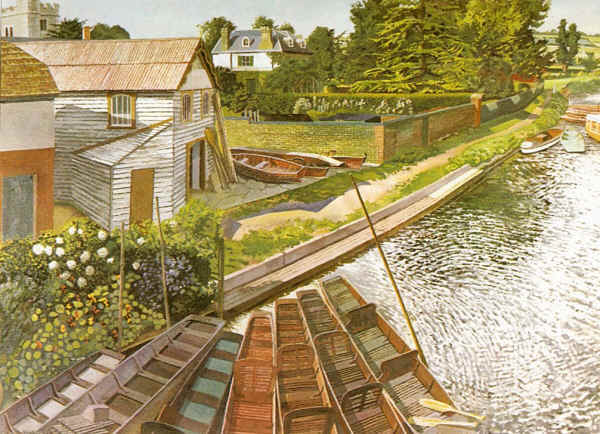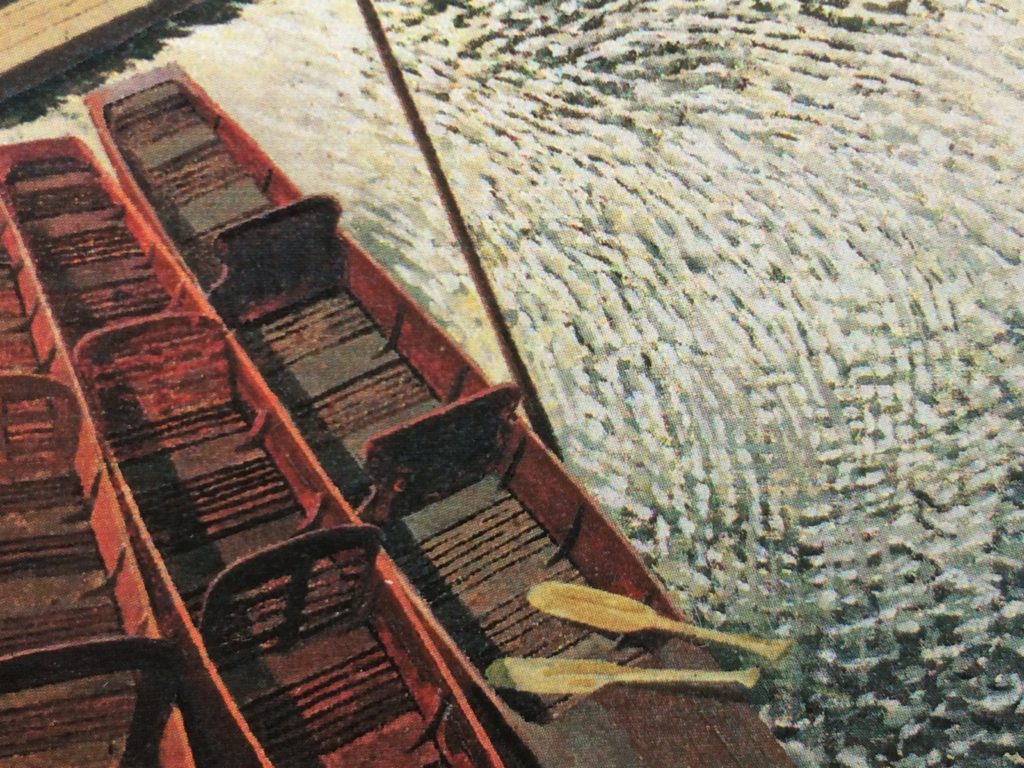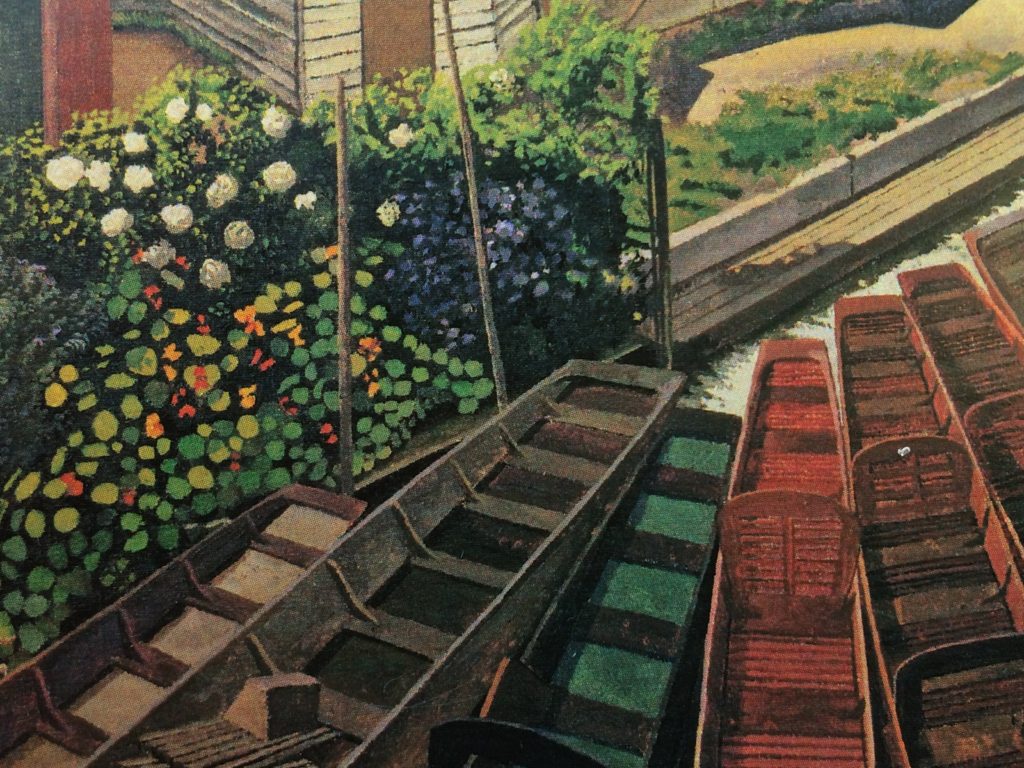Masterpiece Story: Dynamism of a Dog on a Leash by Giacomo Balla
Giacomo Balla’s Dynamism of a Dog on a Leash is a masterpiece of pet images, Futurism, and early 20th-century Italian...
James W Singer, 23 February 2025
22 September 2019 min Read
Stanley Spencer described the village of Cookham, as a ‘village in heaven’. In his unique paintings, Spencer often intertwined Cookham with his spiritual visions. Biblical events are re-enacted against the backdrop of the quaint, chocolate-box English village.

Spencer was born in Cookham. He lived much of his life there and his paintings offer a glimpse into his world. In some works local villagers are at centre stage. People colorful and extroverted, caught up in the business of everyday life. Animating the various locations in the village such as the houses, gardens, and the river. On other surreal occasions, they listen as Christ preaches at the regatta. Or the Resurrection they casually climb out of their churchyard graves.
However, in View From Cookham Bridge (1936), there is no human life or narrative. The river on a summer’s day is a consequent expanse of calm and quiet. Taking place between two world wars, the scene contrasts starkly to those horrific events. Spencer experienced the war firsthand, serving as an army medic and war artist. Those experiences are shared in his murals for Sandham Memorial Chapel.
Stanley Spencer captures both natural beauty and normality in View From Cookham Bridge. Precious qualities due to the proximity of war, in a few years, to begin again. At the base of the painting, seven boats gather together, floating on the river. Some are cheerfully painted bright red and green. Looking down from the bridge the boats appear enticingly large and empty. Therefore becoming Spencer’s invitation to climb aboard and into the scene.

Looking down, beneath the boats water glitters. On the surface shadows and sunlight reflect and fragment. Catching the eye, the water has a life of its own as it dazzles, ripples, and sparkles. Spencer paints this area in an impressionistic style, his brushstrokes dappled in shades of blue, green and white.
Stepping up to the narrow pathway, you pass by a large wooden boathouse (intricately detailed, every wood panel perfectly distinguishable). Oars and long batons of timber lean against it. Further along, boats wait for use resting in a yard. Time stands still, waiting to be enjoyed in surroundings of leisure and peace.
Peek over the red brick wall into gardens lush and tended. Then look beyond to glimpse an elegant house large and pale amongst so much green. Behind the wall tall dark trees grow, their heavy branches cast dark cool shadows over the path. Eventually, the walk leads into the countryside, cultivated fields forming the end of the view.
Growing over the pathway flowering bushes jostle toward the floating boats. Spencer paints the white rose bush in intricate detail. The flowers full and curly, the petals distinguishable. Underneath a nasturtium grows, playfully painted in wobbly green and orange circles.

Realistic details are juxtaposed against the impressionistic. Looking deeper, something strange is present alongside the peace and calm. Spencer paints with intense, bright colors. Those of a summer day under cloudless skies. Colours of happy warm times, comforting and inviting. However, from foreground to distance the focus is sharp and just slightly too intense. Creating an atmosphere, prevailing over the painting. A sensation of something unnatural disturbs the peace. As a result, the longer you spend in the painting the more otherworldly and dreamlike it becomes.
In the top left you can just see the nearby Holy Trinity Church. The windows watch over the river-like eyes. Only here is Spencer’s spiritual association to Cookham alluded to. Nevertheless, without including a spiritual narrative or Biblical characters, Spencer’s feelings are still present. He paints the view through his own eyes, giving an ordinary scene a hint of paradise.
DailyArt Magazine needs your support. Every contribution, however big or small, is very valuable for our future. Thanks to it, we will be able to sustain and grow the Magazine. Thank you for your help!